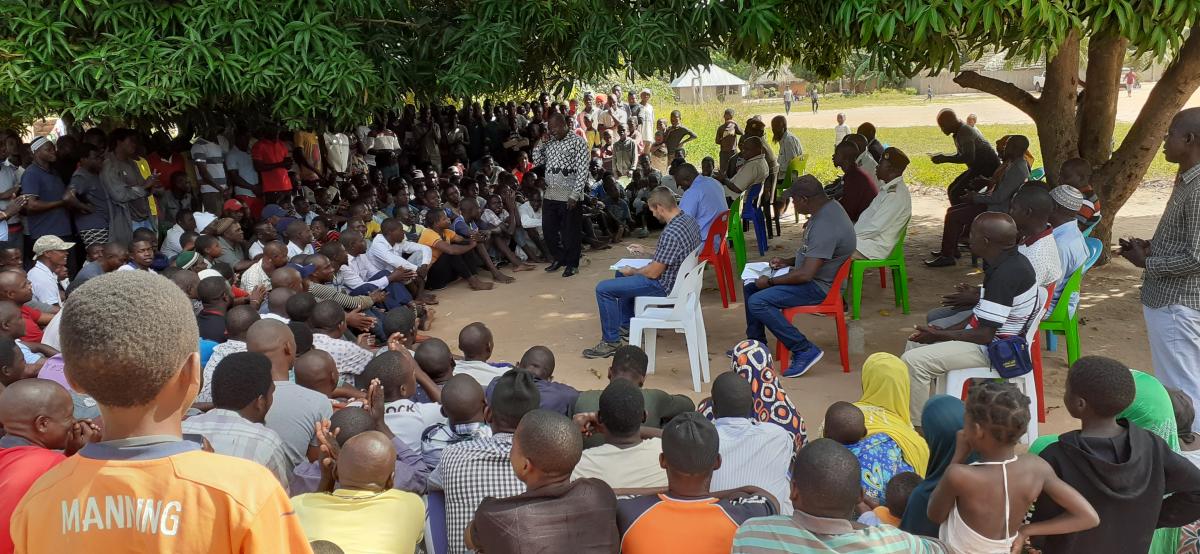Supporting mini grid development in Mozambique: planning and preparation are key to successful delivery
The National Energy Fund (FUNAE) is responsible
for providing energy access solutions to the (rural) areas which are far
located from the national electricity grid in Mozambique. An important task,
considering that the Mozambican government has set the target to realize
universal energy access by 2030. The project Renewable Energy for Rural
Development, Phase 2 (RERD2+) of Enabel aims to support FUNAE in the
development and operation of sustainable energy services in rural areas. One of
the project's primary result areas is increasing energy infrastructure, and in
coordination with FUNAE, the construction of 5 mini-grids powered by solar panels
and batteries in the provinces of Zambézia and Nampula, were agreed upon.
Mini-grids are a long-term project
characterized by an extensive preparatory phase. Because Mozambique is still
developing a national "energy access plan", determining which areas
are considered to be electrified by the national grid and which areas by
stand-alone mini-grids (Enabel also supports the planning division of FUNAE in
the development of these plans), FUNAE and Enabel had to conduct more than 20 socio-economic
feasibility studies in the communities of rural Zambézia and Nampula to verify
if the technical conditions are present for the realization of a mini-grid and
to collect demographic and economic data for the sizing of the mini-grid. Based
on these studies, 5 sites were selected to realize mini-grids. Because of the
technical complexity of these (hybrid) mini-grids, the public procurement for the
design and construction of the mini-grids followed a lengthy process to allow the
Project Implementation Unit (FUNAE and Enabel) to negotiate, within the parameters
of the applicable legislation, the most appropriate design and adequate technology
for the reality in Mozambique. The negotiations allowed for a preliminary
quality assurance of the technical proposals, as it was the first time
Mozambique would be building hybrid mini grids of this calibre. The contracts
were awarded to two construction consortias, which included international and
national firms.
Another critical step in the preparations for the
mini-grid projects was the selection of the beneficiaries in the 5 communities.
Because of budget constraints, FUNAE and Enabel decided to continue constructing
5 mini-grids but to only connect ca. 40% of the target population in the first
phase. Priority was given to beneficiaries with a social function,such as the
local hospital and schools, and beneficiaries who can create economic value in
the community, like shops and artisans. The community selected the remaining
beneficiaries, thus households and families of the project, based on some
technical indications shared by FUNAE. This increased the awareness and support
in the communities for the project and resulted in an excellent socio-economic
mix of families, which will be initially connected to the mini-grid. After the
work of the community, a team of FUNAE, Enabel and the contractors collected
all the data of the beneficiaries on the field, using tablets and a digital
survey developed by the Project Implementation Unit (Enabel and FUNAE staff).
To ensure that more beneficiaries can be connected in a later stage, the
project already imposed some technical measures during the design of the
mini-grids. For example, a bigger plot to install additional solar panels, a
powerhouse with extra capacity and an electrical grid that already covers a big
part of the community.
After this long preparatory phase, the
construction of the mini-grids has started. On all 5 sites, the civil works
have been initiated and the containers with batteries have arrived. Recently,
FUNAE and Enabel engineers were together with the supervisor, who guarantees
the daily monitoring of the works, on the field to inspect the delivered
containers and evaluate the quality of the executed works. The completion of
the 5 mini-grids is expected between the last quarter of 2023 and first quarter
of 2024.
The work does not stop after the construction
of the mini-grids. It is vital to work on the stimulation of productive use of
energy and business development, to improve the sustainability of the mini-grid
operations and the overall development of the communities. This can be done by
introducing specific electrical equipment in the communities, like energy-efficient
electrical corn mills, and setting up financial structures to allow the people
in the communities to buy this equipment. This part of the project will be
initiated by the team of RERD2, and elaborated more specifically as part of the
new portfolio in Mozambique for 2023-2028. This way, Enabel establishes
continuity in its projects on the field and in its engagement to support
Mozambique in climate change mitigation and energy transition.
To read more on the portfolio, click here:https://www.enabel.be/brochure-belgium-mozambique-cooperation-programme-2023-2028/
By: Arn Jonkers and Riccardo del Citto
Latest news from this project
No news

